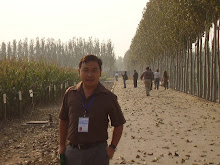We have experienced a drastic change in trade and investments in 10 short years since the birth of the World Trade Organization (WTO) in 1995. Trade in this highly liberalized and competitive world is fast moving. While in the past, we were only focused on WTO and ASEAN issues, now, we need to also pay attention to various FTAs, that have sprouted like mushrooms around the world.
What happened teaches us valuable lessons. We have come to realize that in the economic front, nations cannot remain islands upon themselves. The reality of interdependence has even been clearer between neighboring countries in every continent.
Under the new environment, we witnessed Europe consolidate its economic might by forming the European Union, and creating its regional currency, the Euro. In the Americas, the United States initiated the formation of the North American Free Trade Area (NAFTA) with Canada and Mexico and is further expanding the trade bloc to include nations in Central and South America.
In response, members of the Association of South-East Asian Nations (ASEAN) transformed themselves into an economic alliance now known as the ASEAN Free Trade Area or AFTA. A logical follow-up move forward was for ASEAN to reach out to China, Japan, South Korea and other economies in South Asia.
If I were to sum up in one word the most positive effect the liberalization process bestowed on nations taking into consideration an equal playing field for all is in existence – it would be the proliferation of competitiveness, imbedded not only in the firm level but also in governance and policy making.
PHILIPPINES’ LINGERING COMPETITIVENESS STRIDES
According to the World Economic Forum’s (WEF) 2005 Global Competitiveness Report, the Philippines ranks far below our neighbors in Southeast Asia – Indonesia, India, Thailand and Malaysia, in terms of competitiveness. Using public sector, business environment, technology and macroeconomic environment competitiveness as benchmarks and indicators of a nation’s competitiveness performance in this annual competitiveness survey, we belong in the bottom half of the field, at 77th place out of 117 nations, one place lower from our 2004 rank of 76.
Technology seems to be our strongest competitiveness edge where we are ranked 54th out of 117. However, if we are to benchmark our performance with that of Thailand and Malaysia, it will still appear dismal since the two are in 43rd and 25th, respectively.
What is even more alarming is our ranking on public institutions’ competitiveness index, where we are at a low 104th slot out of 117. Indonesia, known in the ASEAN region for relatively inefficient public sector institutions even ranks higher at 89.
You see, these figures offer us points to ponder in redefining our policies towards economic integration or globalization.
But, we are not on the loosing end. Time and again, we have proven that resiliency is our best friend in times of great ordeals. Last year, our domestic economy posted a modest 4.7% expansion amidst intense political bickering and standoffs we experienced at the second half of year. Both the peso and stock markets have been regarded as one of the strongest currency and trading bourse both in Asia and the world. And our OFWs continue to provide some US$ 9 billion worth of remittances that continue to pump-prime our economy. Domestic consumption has been relatively stable to moderately high, even with the E-VAT implementation and increasing prices of petroleum. Investments have started to plow back into the economy in key sunrise industries – tourism, call centers and other BPOs, transportation and communications. The good “vibes” so as the crystal ball readers might say are well in tact, we just need to find a way to continue with the momentum.
FILIPINO BUSINESSMEN AND LOCAL COMPETITIVENESS
Where does business stand in the competitiveness drive? First, I must point out that local businessmen continue to bet on the future of our economy. We have not chickened out. The Filipino businessmen, if we put our collective minds into it, will bring progress and prosperity to our country.
To end with a ray of hope, let us see if we have been developing sunrise industries. The air is full of where and how we have gone bad, most of us don’t bother to look for our redeeming sides, anymore.
I foresee a steady growth of enterprises and new industries that find themselves integrated in the Asia-wide production, supply and distribution chain. Our trade with the rest of Asia is expected to steadily rise as parts of the regional economy are drawn closer to each other.
We, in the chamber movement over the years have become the critical catalyst for economic development. In most instances, we have shown and led the way for economic survival and cooperation. In this time of great ordeal that our nation is beset with, we again stand firm as an institution to serve our small constituents with important and key services needed to survive the test of time.
I believe that the greatest thing in this world is not so much where we are, but in what direction we are moving. Unless you set big, worthwhile goals, you’ll never move beyond your current abilities. You, as the forthcoming association of business leaders engaged in international trade policy, have the power to calibrate the engine for economic growth and ensure our competitiveness advantage stands tall internationally.
We have learned from the past, and the present is our platform for the future. This year I encourage the Chamber of International Trade to continue and complete the projects that will make our country more competitive. I am convinced that you have the management and staff, the enthusiasm, the pride, and the skills for the opportunities that lie ahead. I look forward to your active engagement in the activities of PCCI.
Thank you and a pleasant day to all.
Tuesday, March 3, 2009
Subscribe to:
Post Comments (Atom)

No comments:
Post a Comment